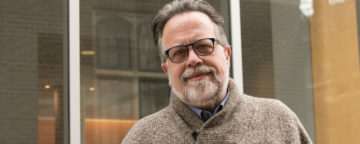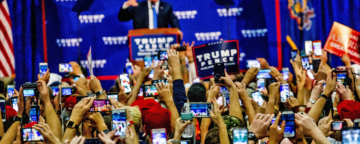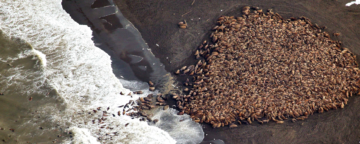Communication scholar G. Thomas Goodnight of the University of Southern California's Annenberg School has joined APPC for the spring 2017 semester as a visiting scholar.


Michael Rozansky has worked as an editor, writer and reporter for 30 years. Before joining the Annenberg Public Policy Center as director of communications, he spent more than 20 years at the Philadelphia Inquirer, most recently supervising its arts and entertainment coverage. He has reported on the arts, media, business, politics, national and regulatory issues. Rozansky also developed and taught a class at Temple University on the history and practice of celebrity journalism. He received a bachelor’s degree in English and American literature from Brown University and a master’s degree in journalism from Columbia University’s Graduate School of Journalism.

Communication scholar G. Thomas Goodnight of the University of Southern California's Annenberg School has joined APPC for the spring 2017 semester as a visiting scholar.

Science curiosity appears to counteract people’s tendency to seek out only information that supports their political biases, according to a new study finding that people who are science-curious are more willing to grapple with surprising information.

The amount of gun violence in top-grossing PG-13 movies has continued to exceed the gun violence in the biggest box-office R-rated films, according to an APPC analysis published in Pediatrics. PG-13 movies also usually feature gun violence without showing consequences such as blood and suffering, researchers said.

New York Times op-ed columnist Andrew Rosenthal has joined the Annenberg Public Policy Center for the 2017 spring semester as a professional in residence. He'll be writing a memoir about his life in journalism.

FactCheck.org, the nonpartisan consumer advocate for voters, is among several fact-checking organizations that will work with Facebook in helping to identify and label viral fake news stories flagged by readers.

Nearly half of the news stories over last year’s holiday season that linked the holidays and suicide perpetuated the myth that there's an increase in suicide from Thanksgiving through January, according to a new analysis.

What do Trump voters expect from the President-elect and how has he been doing in his first month as PEOTUS? On December 13, pollster Peter D. Hart will conduct a focus group in Cleveland to ask these questions.

Even liberals and moderates who are more likely than conservatives to be suspicious of Fox News can be influenced by a misleading article on FoxNews.com about Arctic sea ice trends, researchers found.

How do science communicators most effectively present research to multiple audiences interested in different aspects of it? Such questions provided the framework of the 2016 Annenberg Lecture delivered by Marcia McNutt, president of the National Academy of Sciences.

In 2014, 35,000 walruses crowded ashore on an Alaskan beach instead of resting on ice floes. In a newly published case study, researchers studied TV news coverage of the walrus "haul-out" and people's selective exposure to it.